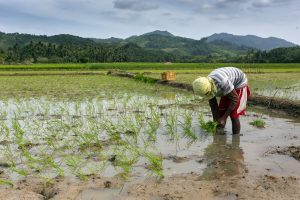On Tuesday, the Philippine Senate ratified the Regional Comprehensive Economic Partnership (RCEP), becoming the last signatory aside from Myanmar to accede to the regional trade mega-pact.
After two days of debates, the Senate voted overwhelmingly to ratify the agreement, Rappler reported, with just one opposition senator opposing the measure and one representative – Senator Imee Marcos, the sister of President Ferdinand Marcos Jr. – abstaining.
The Philippines is the last country to ratify RCEP, aside from military-ruled Myanmar, whose instrument of ratification has been rejected by several members of the pact over its human rights issues.
Initially signed in November 2020 by the leaders of 15 Asia-Pacific countries, including all 10 members of the Association of Southeast Asian Nations (ASEAN), RCEP covers nearly a third of the world’s population and a similar proportion of its gross domestic product. In addition to ASEAN, the agreement includes Australia, China, Japan, New Zealand, and South Korea – but not the United States.
First proposed by ASEAN in 2011, RCEP will eliminate up to 90 percent of the tariffs on imports between its signatories within 20 years of coming into effect. It will also establish common rules for e-commerce, trade, and intellectual property. According to the Philippine Department of Trade and Industry, RCEP members account for around 50 percent of the Philippines’ exports and around 68 percent of its imports.
The Philippines’ ratification of the pact was delayed by last year’s election and staunch opposition from farmers’ groups, which fear that RCEP will open the Philippines to a wave of imported goods that will undermine local producers. They have called on the Senate to either reject or delay the ratification of the pact.
Since taking office last July, Marcos and his economic team have pressed hard for ratification of the agreement. Arsenio Balisacan, the secretary of the National Economic and Development Authority, said this month that ratification of RCEP was vital to the country’s future. On Twitter yesterday, Balisacan described the ratification as a “bold and game-changing move,” and that RCEP would provide “another engine for growing the economy and making it part of rapidly rising Asia.”
The Philippines’ formal accession to RCEP offers an interesting contrast and complement to the rapid recent developments in the Philippines’ security relationship with the United States, its longtime ally. These developments, which included the expansion of the U.S. military presence in the Philippine islands, encapsulate Washington’s increasingly assertive efforts to contain Chinese power and influence.
Recent developments in the Philippines show that for reasons of inclination, institutional inertia, and domestic politics, the U.S. effort has been focused overwhelmingly on military means. As I noted when Indonesia ratified RCEP last August, the U.S. now sits outside the two major Asia-Pacific trade pacts, following President Donald Trump’s withdrawal from the U.S.-led 12-nation Trans-Pacific Partnership in 2017.
Yet the continuing advance of trade agreements like RCEP, whatever their deleterious effects in terms of inequality and disruption, suggests that economic prosperity remains a core interest for many nations in Southeast Asia and the wider Asia-Pacific – and that economic interaction with China remains an important component of the mix. While there is a degree of overlap on the security front between the U.S. and its Asian partners, especially for those nations facing China’s maritime might in the South China Sea, there is a continuing divergence in their broader aims.

































